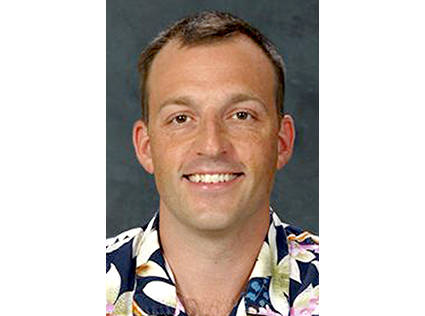KAILUA-KONA — Big line items like the $90 million Saddle Road extension headline the two-year, $28.4 billion budget expected to be approved by the state Legislature in coming days, but a number of smaller appropriations will impact pockets of West Hawaii by addressing a variety of nuanced needs.
Perhaps chief among those needs is the growing number of homeless lining the streets up and down the coast, particularly in Kona.
An additional $3 million in general funds was added to the budget for fiscal year 2018 to bolster the Housing First program, which focuses on direct housing for homeless individuals suffering from drug addiction and/or mental illness.
Sen. Josh Green, who represents Kona and Ka’u, said $500,000 is earmarked for Hawaii Island.
“That makes a big difference for us,” Green said. “All of those rapid rehousing monies will (be split) in a proportional way for all the regions … but we do have some homeless density occurring now in Kona and Hilo, so we will get those resources.”
In the same vein, Bridge House, a sober living center providing drug and alcohol treatment, received a grant of $180,000. Green also noted an additional $100,000 to be allocated to Habitat for Humanity West Hawaii.
“I like the idea of putting direct housing into our community,” he said.
Monies to construct more living space for the homeless are placed in the revolving housing trust fund. Green said he’d hoped to see $75 million allocated to that fund, but ultimately only $25 million was appropriated. He added he’ll be pushing for the additional $50 million next session.
The Laiopua 2020 Project received $500,000 to aid its efforts toward affordable housing as well as developing its water source.
Also, the West Hawaii Community Health Center was granted $925,000, something Green said he and Rep. Nicole Lowen, who represents Kailua-Kona, Holualoa, Kalaoa and Honokohau, had prioritized.
“This will help extend the West Hawaii Community Health Center, which provides an incredible amount of primary health care for our people on the Kona side,” Green said.
Rep. Cindy Evans, who represents North Kona and South and North Kohala, said she was perhaps most pleased to see the budget prioritize invasive species control — not just with monies allocated to fight specific pests, but more importantly with restructuring measures to streamline and coordinate responses to emerging threats.
The Hawaii Department of Land and Natural Resources was allocated an additional $4 million in each of the next two fiscal years to create the Hawaii Invasive Species Council, which Evans said should establish an appropriate chain of command and lead to greater accountability, transparency and less muddled priorities.
The council will aid continued efforts in West Hawaii to mitigate the devastation to the Kona coffee crop by the coffee berry borer and to control the burgeoning population of little fire ants spreading throughout the area. It also may clear the path for additional funding by identifying and cataloguing other threats to agricultural products and endangered species.
“There could be more money out there, but somebody has to lead the charge,” Evans said. “What we wanted as legislators was to get the money out there so the county, which is on the ground leading the fight, can respond and give resources to the public. It’s going to be a community-driven effort. We’re all going to have to collectively come together.”
She added that nearly $9 million for a new U.S. Department of Agriculture inspection station at Kona International Airport will prove a boon in the fight against invasive species.
Other budget allocations for KOA include $3.5 million to design and construct an emergency generator for the terminal and $450,000 for design and construction of an aircraft rescue and firefighting command center.
Evans also noted the benefits of $1.1 million for paving and drainage improvements at Kawaihae’s North Harbor, $3.6 million for planning, design and construction of a synthetic track and performing arts/student activity center and Kealakehe High School, and $450,000 to improve Waimea’s irrigation system.








